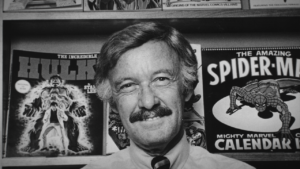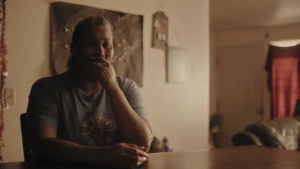Watch ‘Sicko’ and Call Your Congressman in the Morning
The rudimentary equation of the health insurance industry is that to make a profit, it must take in more money than it pays out in claims. This is why the public, as distinct from the political class, will intuitively understand and likely appreciate Michael Moore's new film, "Sicko."WASHINGTON — The rudimentary equation of the health insurance industry is that to make a profit, it must take in more money than it pays out in claims. This is why the public, as distinct from the political class, will intuitively understand and likely appreciate Michael Moore’s new film, “Sicko.”
There is nothing particularly startling about any of Moore’s stories of average Americans who are bankrupted, or who grow sicker, or who desperately seek treatment abroad, or who die because health insurance bureaucrats denied or restricted the care they could receive. When Moore put out an invitation on the Internet for people to come forward with their “health care horror stories,” he got more than 3,700 responses in the first 24 hours — within a week, he had amassed more than 25,000 stories.
These affronts to common sense and human decency have a monotonous familiarity. There is the middle-aged couple who lose their home and are forced to move into a daughter’s basement because of financial catastrophe brought on by the co-payments and deductibles related to the husband’s treatment for three heart attacks — which were followed by the wife’s cancer diagnosis. There is the slender, 79-year-old man who works as a supermarket janitor to finance the out-of-pocket costs of his prescriptions.
We meet a 22-year-old single mother whose treatment for cervical cancer is denied because her insurer said she was “too young” to have been given such a diagnosis. And a couple says that their daughter, who at 9 months was becoming deaf, would get coverage for only one cochlear implant — not two — because the insurer considered the surgery experimental. But, the perplexed father asks, if the company had confidence that the implant would work to improve hearing in one ear, why would it be “experimental” in the other?
“I was told repeatedly that I was not denying care, I was simply denying payment,” Linda Peeno, a doctor and former managed-care medical claims officer, testifies in a video clip from a 1996 congressional hearing. Even this absurdity does not shock, because we have heard it so often, for so many years.
That is the real point of Moore’s film. We are guilty of national malpractice for allowing the profit motive to drive decisions about who gets healthcare, and of what sort. “Any payment for a claim is referred to as a medical loss,” Peeno says in the movie.
After Moore’s film opens nationally on Friday, loud and contentious political talk about it is sure to grow louder. Much of it, no doubt, will be aimed at discrediting the national medical systems of Canada, Britain, France — and, yes, Cuba — which Moore holds up as models of compassionate efficiency. Much of it will consist of screeching broadsides aimed at Moore, who unnerves conservatives because he is not some pointy-headed liberal professor from Cambridge but a funny guy from Flint, Mich., who wears a baseball cap and did precisely what the right always preaches: He found something he was good at and made a fortune doing it.
Much discussion also will be premised on the assumption that what Moore advocates — government-funded healthcare that would be available to everyone — is politically impossible in the United States because the American public recoils from it. Balderdash.
The public embraces Medicare, which is government-funded healthcare that is available to all elderly people. It has an enduring affection for Social Security, another government-funded, universal benefit.
As for government-funded health insurance, it would be enlightening if those who so reflexively assert that the public has already rejected it would just ask — well — the public. In a May CNN poll, 64 percent said they thought the government should “provide a national health insurance program for all Americans, even if this would require higher taxes.” In February, the New York Times/CBS poll found that 60 percent were willing to pay higher taxes so that everyone had insurance. In January, the NBC/Wall Street Journal poll asked a similar question about paying more taxes for universal insurance and again a majority said yes.
So on healthcare, Moore is no left-wing extremist, as so many Republicans claim. Nor is he much of a provocative nuisance, as some Democrats gripe. He is far closer to people’s thinking than are politicians of either party. The reason they fear Moore isn’t so much his movie, but its potential to upset their complacent caution.
Marie Cocco’s e-mail address is mariecocco(at symbol)washpost.com.
© 2007, Washington Post Writers Group
Your support matters…Independent journalism is under threat and overshadowed by heavily funded mainstream media.
You can help level the playing field. Become a member.
Your tax-deductible contribution keeps us digging beneath the headlines to give you thought-provoking, investigative reporting and analysis that unearths what's really happening- without compromise.
Give today to support our courageous, independent journalists.






You need to be a supporter to comment.
There are currently no responses to this article.
Be the first to respond.